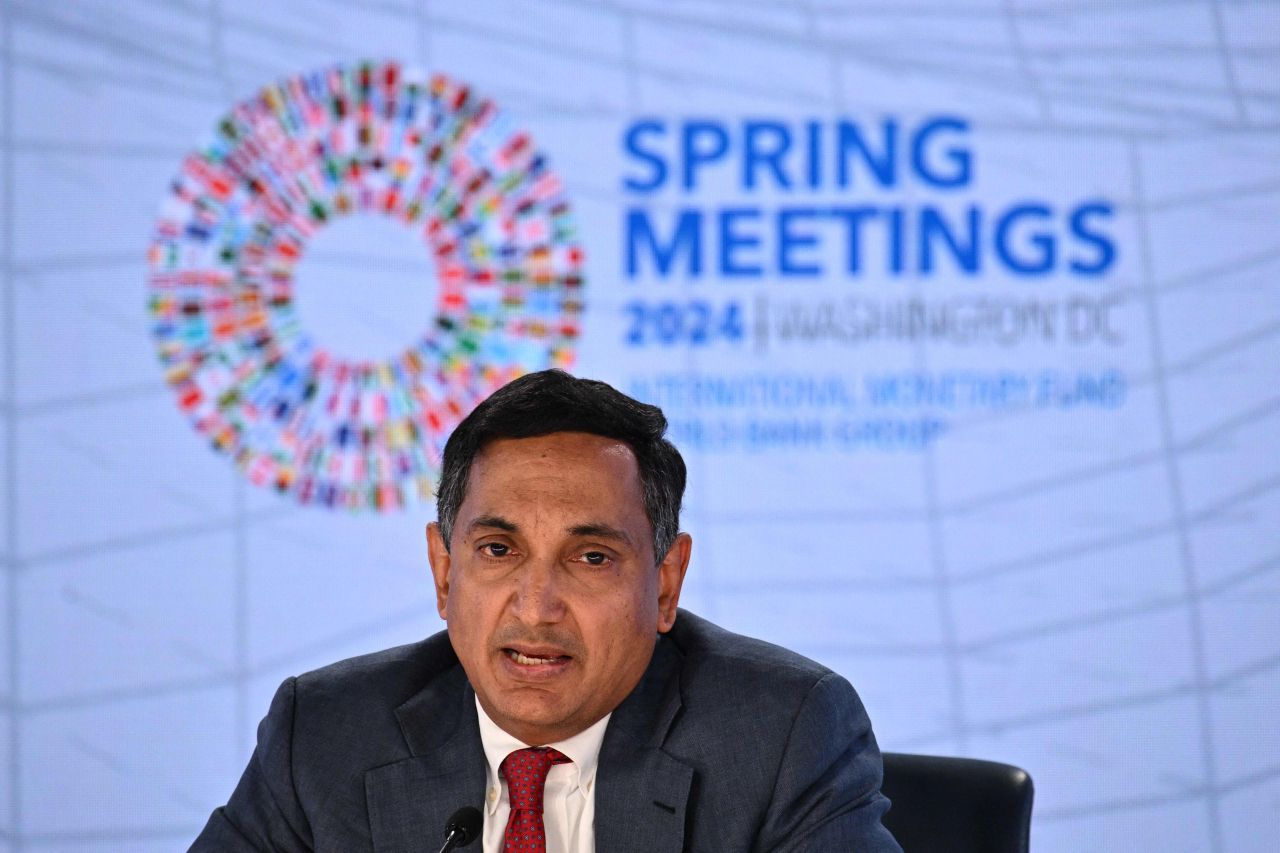 |
Krishna Srinivasan, director of the IMF's Asia and Pacific Department, holds a press briefing at IMF headquarters in Washington on Thursday. (AFP-Yonhap) |
Exchange rate volatility does not present 'significant" economic challenges to South Korea, an official at the International Monetary Fund said Thursday, advising policymakers in Seoul not to "overly" focus on what moves the US Federal Reserve will take.
During a press briefing, Krishna Srinivasan, director of the IMF's Asia and Pacific Department, made the remarks as concerns deepened over the recent depreciation of the Korean won at a time when Asia's fourth largest economy grapples with high prices and other headwinds amid expectations that the Fed could start rate cuts later than anticipated.
"In the case of Korea, I would say exchange rate volatility does not pose significant economic challenges given limited currency mismatches and manageable pass through to inflation," he told reporters.
A currency mismatch refers to a mismatch in the currency composition of assets and liabilities, where assets are denominated in domestic currency and liabilities in foreign currency.
When the won depreciates against the dollar after a person or a company has taken out a loan -- denominated in US dollars -- to invest locally in the domestic currency, it can create stress on their cashflow.
Srinivasan stressed that South Korea should focus on the domestic situation, like price stability, as he addressed a question about what South Korea's central bank should do to preserve financial and economic stability.
"I would say that the focus of monetary policy in Korea should be on inflation ... what's happening there. It should be firmly on the tightening mode until inflation comes back to (its) target," he said.
"Don't be overly focused on what other central banks are doing," he added.
Touching on the issue of what will drive growth for countries, he anticipated a "positive" export-driven impetus.
"In some advanced economies, such as Korea, we expect a positive impulse from exports driven in part by strong global demand for high-end semiconductors," he said. "Domestic demand would strengthen only gradually."
This week, the IMF held steady its 2024 growth outlook for South Korea at 2.3 percent on the back of resilience in major global economies.
The latest IMF projection is rosier than the 2.2 percent growth forecast by the Organization for Economic Cooperation and Development and by the South Korean government. The Bank of Korea has set its outlook at 2.1 percent. (Yonhap)







